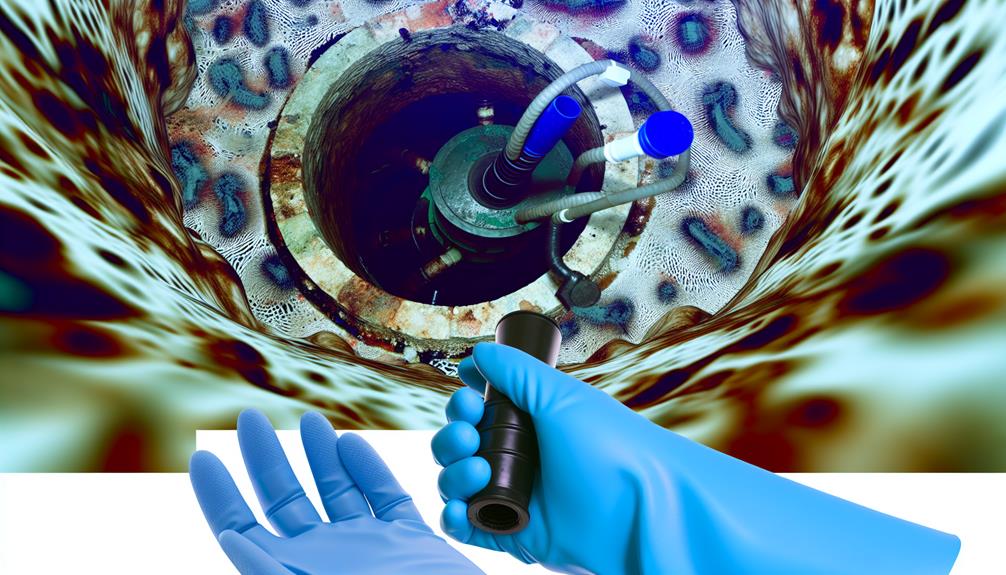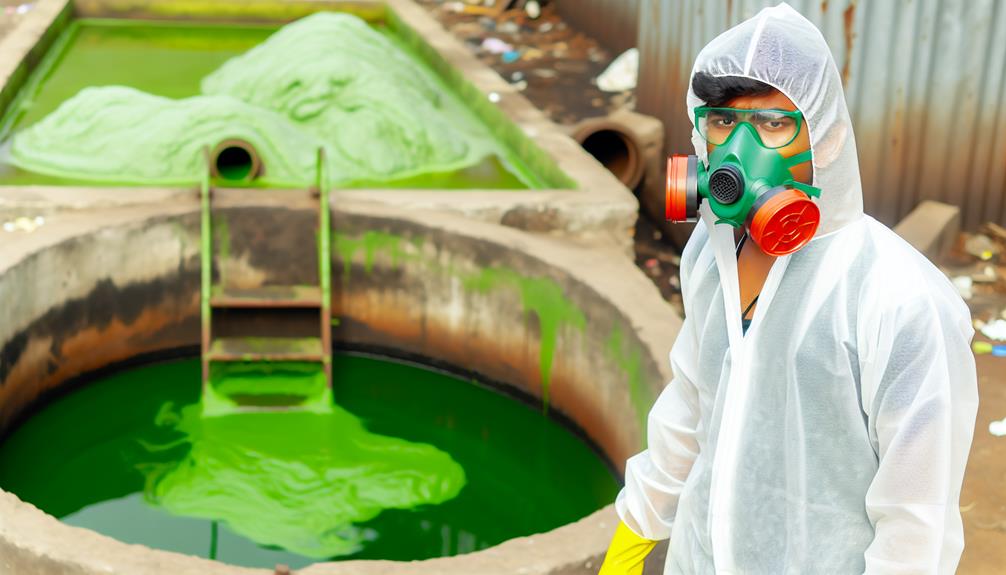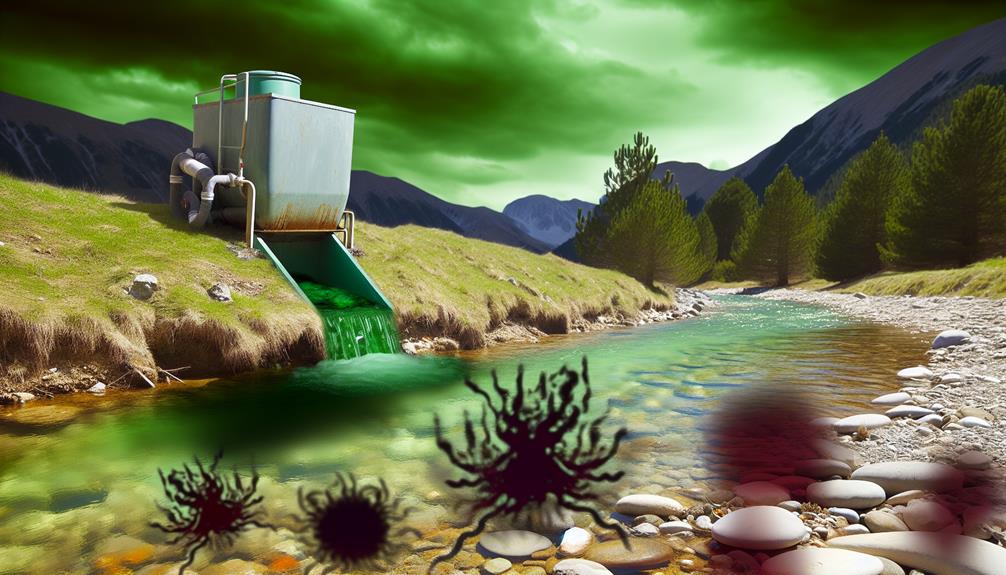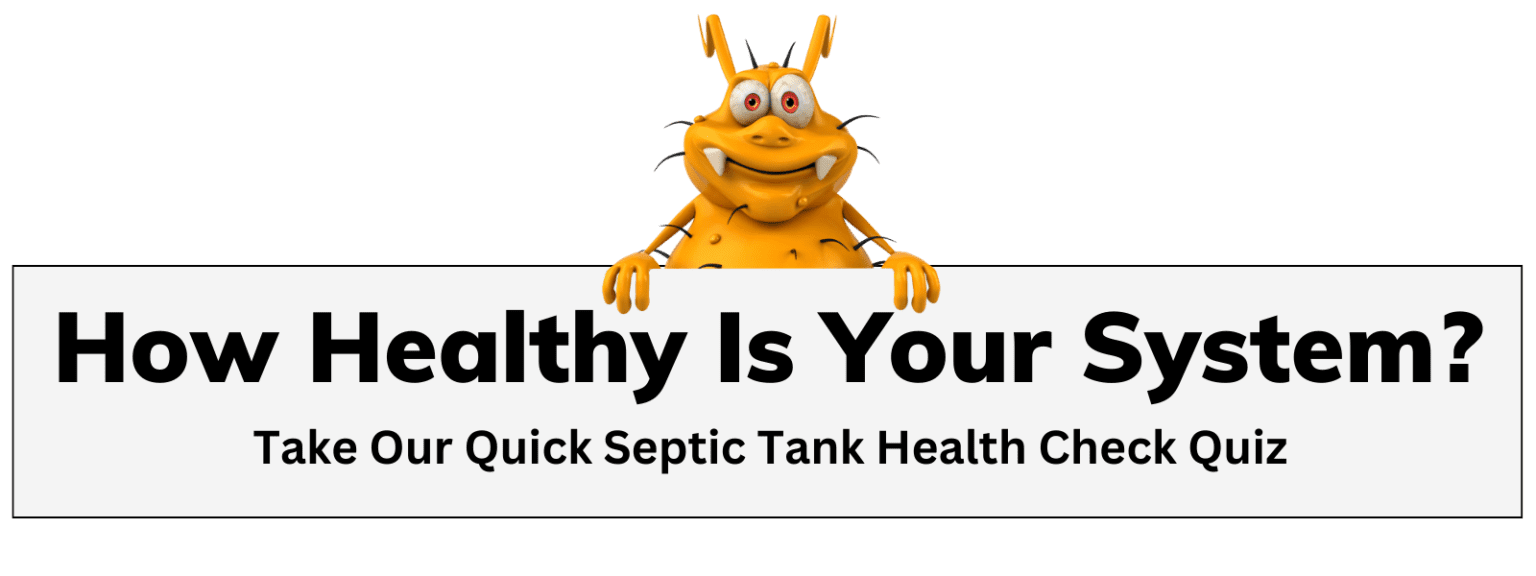Discover how to protect your septic system from breakdown with...
Read MoreYou & Your Septic Tank
What Health Dangers Lurk in Septic Tank Pumping?
Our professional septic service team offers comprehensive septic tank pumping services to keep your system running smoothly. Get a FREE Quote Today.

What Health Dangers Lurk in Septic Tank Pumping?
Just like the infamous Pandora’s box, septic tank pumping can unleash a host of unseen dangers lurking beneath its surface. You might think it’s just a simple task of cleaning, but it’s not. It’s a risky dance with harmful bacteria, dangerous gases, and potentially harmful chemicals.
You’re not only putting yourself at risk of infection from exposure to these unsanitary conditions, but you’re also potentially endangering your environment, especially if the waste isn’t disposed of properly.
And if you thought that was the end of it, you’d be mistaken. There’s more than meets the eye when it comes to the hazards of septic tank pumping.
So, are you ready to uncover the rest of the iceberg?
Key Takeaways
- Exposure to septic tanks can lead to bacterial and viral infections, including septic shock.
- Septic waste contains dangerous chemicals that can pose serious health threats, such as toxic fumes and skin irritation.
- Gases produced in septic tanks can cause respiratory issues if inhaled, and prolonged exposure can lead to unconsciousness or death.
- Improper disposal of septic tank waste can spread toxins and disease-causing pathogens, contribute to groundwater contamination, and harm aquatic life.
Potential Infections From Septic Tanks

Upon exposure, septic tanks can potentially lead to a variety of bacterial and viral infections, endangering your health significantly. It’s not just the unpleasant odor that should concern you. The real danger lies in bacterial proliferation, a process where harmful bacteria multiply rapidly, creating an environment ripe for disease transmission.
Septic shock risks are among the most severe consequences of exposure to untreated septic waste. This life-threatening condition occurs when an infection in your body spreads into the bloodstream, leading to a dramatic drop in blood pressure. Symptoms can include fever, rapid heart rate, and confusion. If not treated promptly, septic shock can lead to organ failure and death.
Moreover, direct contact with septic waste can cause a range of other infections. For instance, E.Coli and salmonella, common bacteria found in septic tanks, can lead to severe gastrointestinal illness if ingested. Additionally, certain viruses and parasites in the waste can lead to conditions like Hepatitis A or giardiasis.
Chemical Exposure Risks
Beyond the risk of bacterial and viral infections, you’re also exposed to dangerous chemicals in septic waste that can pose serious health threats.
Toxic fumes, for instance, are a considerable hazard. These harmful gases, including ammonia, methane, and hydrogen sulfide, can be released during the pumping process. Inhalation of these fumes can lead to serious respiratory problems and, in extreme cases, loss of consciousness or even death.
Moreover, the chemical exposure risk doesn’t end with the inhalation of toxic fumes. Skin contact with septic waste can also result in hazardous consequences. Certain chemicals present in the waste can cause skin burns, irritation, and in severe cases, chemical burns.
Research suggests that even short-term exposure can trigger allergic reactions or more severe conditions like chemical dermatitis. Therefore, it’s crucial to use appropriate personal protective equipment including gloves, goggles, and respirators when dealing with septic waste.
Breathing Problems Due to Gases

While you mightn’t consider it, the gases produced in a septic tank, particularly ammonia, methane, and hydrogen sulfide, can cause significant respiratory issues if inhaled. These gases aren’t only odorous but are also highly toxic. Prolonged exposure can lead to headaches, nausea, dizziness, and in severe cases, unconsciousness or death.
Here’s where the gas mask necessity comes into play. Wearing a gas mask isn’t just about avoiding the unpleasant smell. It’s about protecting your lungs from harmful gases that can cause long-term damage. The mask filters out hazardous substances, ensuring you’re breathing in clean air.
Additionally, ventilation importance can’t be overstressed when dealing with septic tanks. Proper ventilation ensures that gases are adequately dispersed, reducing the concentration of harmful substances in the air. It’s crucial to keep the area well-ventilated, especially during pumping, to minimize the risks.
Contamination of Groundwater
Just as the gases from septic tanks can pose serious health risks, so too can the potential for groundwater contamination, another significant concern that merits attention. Groundwater contamination happens when harmful substances seep into the soil and reach the water table, the upper surface of the groundwater. This can lead to various problems, including the spread of waterborne diseases and soil degradation.
Here are some key points to remember:
- Groundwater contamination can be caused by septic tank overflow, leaks, or improper maintenance.
- The contaminants can include harmful bacteria, viruses, chemicals, and other hazardous substances.
- This contamination can lead to the spread of waterborne diseases like cholera, typhoid, and dysentery.
- It can also cause soil degradation, making the land unsuitable for agriculture or other uses.
- Preventative measures such as regular septic tank maintenance, proper waste disposal, and use of eco-friendly products can help avoid these issues.
Therefore, you must ensure that your septic tank is properly maintained and pumped regularly to prevent this contamination. Ignoring this can’t only impact your health, but also the environment and the health of those around you.
Dangers of Improper Disposal

Neglecting to properly dispose of waste from your septic tank doesn’t just pose a personal health risk, it’s a ticking time bomb for the environment, spreading toxins and disease-causing pathogens far and wide. The waste mismanagement consequences can be dire, leading to extensive land pollution impact that’s not easily reversible.
When waste isn’t disposed of properly, it seeps into the soil and groundwater. This can lead to the spread of diseases like dysentery, typhoid, and hepatitis. Moreover, the excessive nutrients from the waste can cause algal blooms in nearby bodies of water, leading to oxygen depletion and harm to aquatic life.
Besides these health risks, improper disposal also contributes to land degradation. The toxins in the waste can affect soil fertility, impacting agricultural production and disrupting ecosystems. Additionally, the sludge from septic tanks can contaminate surface waters, harming wildlife and degrading natural habitats.
Furthermore, waste mismanagement can lead to the emission of greenhouse gases, contributing to climate change. Methane, a potent greenhouse gas, can be released from poorly managed septic tanks.
Frequently Asked Questions
What Are the Potential Health Risks for Individuals Living Near Septic Tanks?
Living near septic tanks, you’re at risk for harmful bacteria and viruses if septic tank maintenance is neglected. Proper household safety measures, like regular pumping and inspection, can mitigate these health threats.
Can Septic Tank Pumping Cause Long-Term Health Issues?
Yes, septic tank pumping can cause long-term health issues. You’re at risk of chemical exposure and potential bacterial infections. Regular contact with untreated sewage can lead to serious illnesses and chronic health conditions.
How Can One Safely Pump a Septic Tank Without Risking Exposure to Health Hazards?
You must understand the importance of preventive maintenance. Don’t risk DIY pumping, it’s hazardous. Instead, hire professionals who have appropriate training and equipment to handle the task safely, mitigating potential health threats.
Can Septic Tanks Attract Pests, and if So, What Kind of Diseases Can They Carry?
Yes, improperly maintained septic tanks can attract pests, potentially carrying diseases like Leptospirosis or Hantavirus. Pest prevention methods include regular inspections and pumping, thus reducing disease transmission routes to you and your family.
What Kind of Protective Gear Should Professionals Use During Septic Tank Pumping to Avoid Health Risks?
When pumping a septic tank, you’d better don your armor. Think helmets, goggles, gloves, and waterproof clothing. Regular equipment maintenance and strict disposal protocols are key to reducing your exposure to harmful pathogens.
Conclusion
In wrapping up, don’t underestimate the health hazards hidden in septic tank pumping. It’s not just about potential infections, but also chemical exposure and breathing issues due to gases.
The risk to our precious groundwater can’t be ignored, and improper disposal’s no laughing matter.
Let’s be smart and stay safe, because playing fast and loose with septic tanks is a game no one wins.
You may also like...
Why Are DIY Fixes Essential for Septic Tank Pumping?
Tap into the importance of DIY fixes for septic tank...
Read MoreUnveiling the Average Costs of Septic Tank Pumping
Master the mysteries of septic tank pumping costs and avoid...
Read More
The Best Septic Tank Pumping Services Near You

Answer Some Questions
Let us know about your needs so we can find you the right septic tank pros.

Get Quotes
We will put you in touch with the right septic tank pros for your job and location.

Hire Right
Compare quotes, message or call pros, and hire only when ready.



